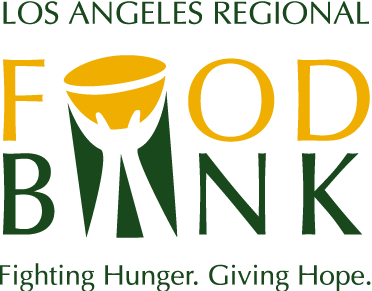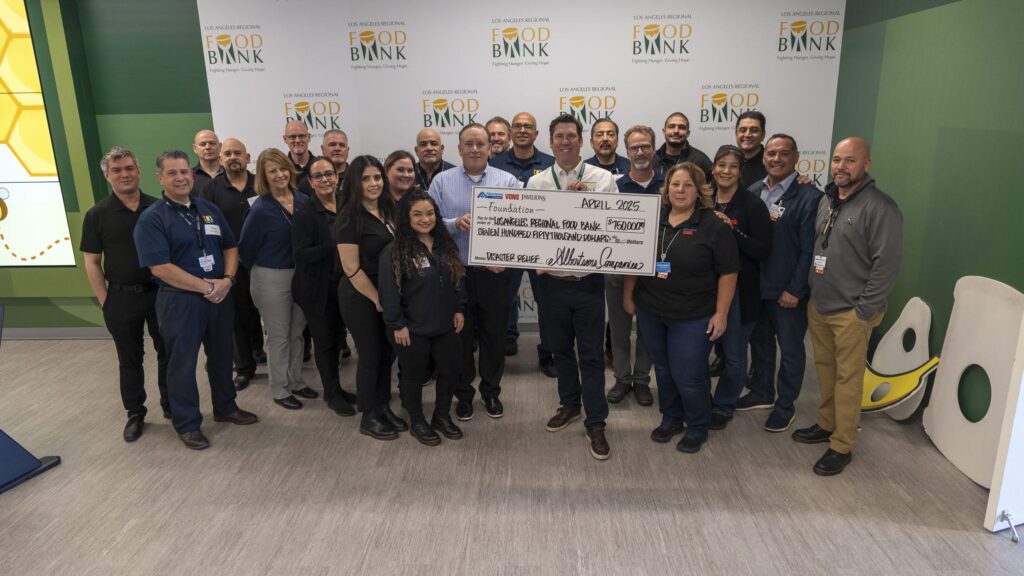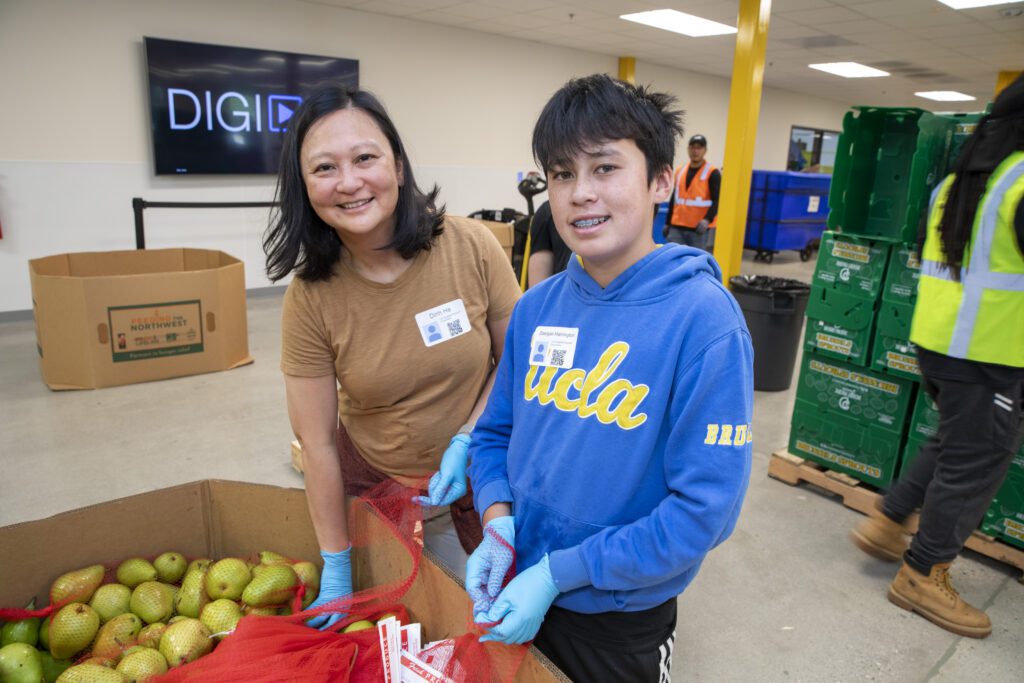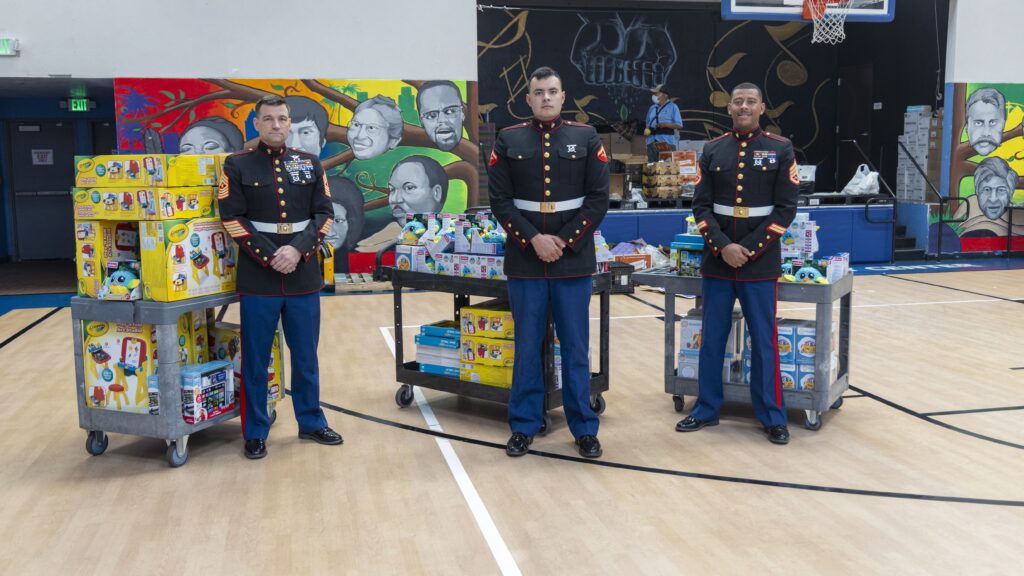A Family Affair to Help Those in Need
A Family Affair to Help Those in Need
College life has looked radically different than the norm in the past year and a half; campus life has ceased to exist as students and faculty took everything online. But one thing that continues to affect the college student population is food insecurity, an important factor that is still very much present among thousands of students across Los Angeles County and the country.
Cerritos College, one of the five largest community colleges in the County with an average yearly attendance of 22,000 students, has seen the fallout of the pandemic among its students. Well over half of its students are faced with the daunting decision of having to choose between purchasing food or buying school textbooks, paying rent or their tuition or even foregoing higher education to be able to put food on the table for themselves or their families.
Working with the College’s Student Services & Support, Falcons Nest, Cerritos partnered with the Los Angeles Regional Food Bank to provide its students with basic necessities, including food that helps students stay nourished and gives them peace of mind in time for class, and a few extra dollars to pay other critical expenses.
While face-to-face interactions have gone non-existent to minimal in virtually every college campus, there is still a sense of camaraderie amongst students at Cerritos College. Part of that, according to Pamela Sepulveda, Case Manager at Cerritos College, is thanks to the ongoing food distributions held in partnership with the LA Regional Food Bank.
Alma de Leon is an Adult Education student at Cerritos. Like millions of families across LA County, the pandemic has hit home financially, but through unity, she and her family are now on the road to recovery.
Through one of her courses, de Leon learned about the opportunity to volunteer at food distribution events and help her fellow peers. Without hesitation, she riled up her family and started volunteering to help distribute food on a monthly basis when the Food Bank holds its drive-through Mobile Food Pantry.
In her upbringing, de Leon was taught that while she was financially and/or physically able, she should always help her peers in any way possible, a lesson she gladly passed on to her children.
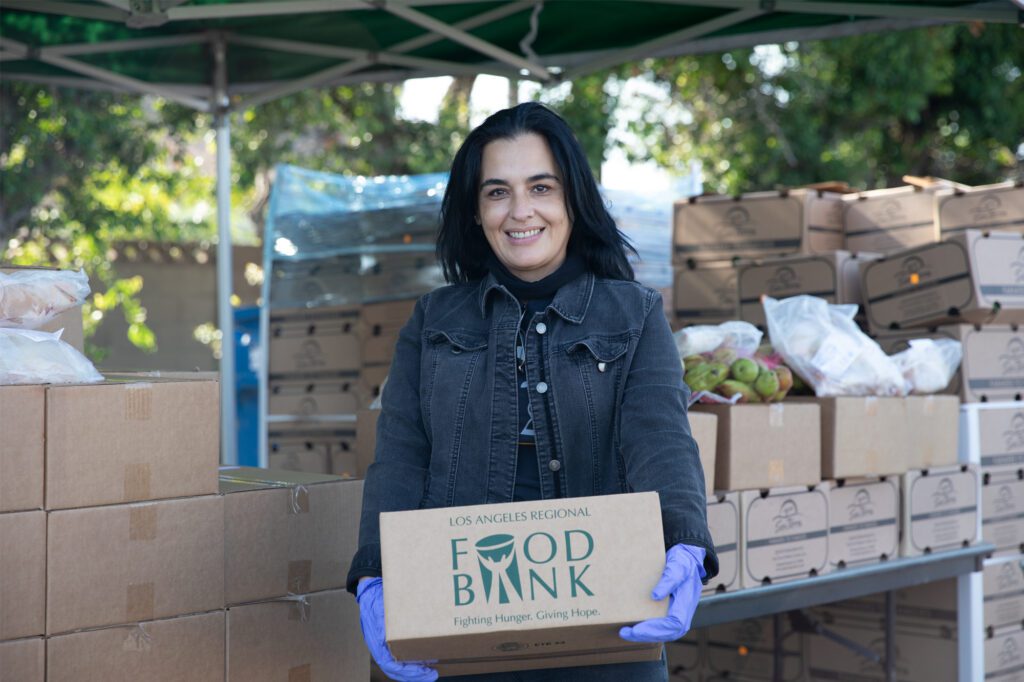 “I’ve always tried to be altruistic, but I learned about this opportunity in my Career Skills course,” she said. “I was raised with the ideology that you have to give back when you receive even a little. That was something my parents taught me, that while we can, we have to give back to others.”
“I’ve always tried to be altruistic, but I learned about this opportunity in my Career Skills course,” she said. “I was raised with the ideology that you have to give back when you receive even a little. That was something my parents taught me, that while we can, we have to give back to others.”
De Leon’s daughter, Jackeline Armendariz, a second-year Biology student who aims to become a doctor someday, was amongst the student volunteers that were ready to distribute 1,200 food kits that day.
Seeing the economic fallout amongst her fellow peers and being a monthly volunteer at the food distributions along with her family and friends, Armendariz invited her peers to join them as volunteers, and have the opportunity to perhaps take a box of food at the end of the day.
“I immediately told them to come, and I told them to not just come for the food, but to come to support,” the 20-year-old said.
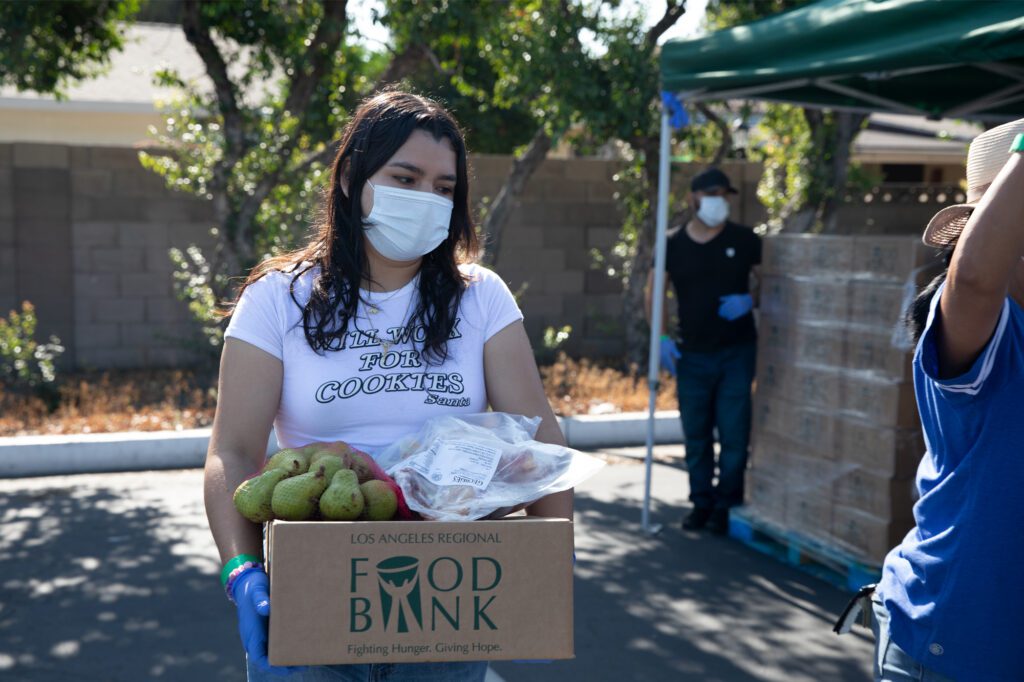 De Leon and her family happily helped put food boxes into the trunks of the hundreds of cars that lined up for the distribution that lasted from 9 am to 11am. While the day was long and the line of cars never seemed to cease, the satisfaction of helping someone in need was worth it for de Leon and Armendariz.
De Leon and her family happily helped put food boxes into the trunks of the hundreds of cars that lined up for the distribution that lasted from 9 am to 11am. While the day was long and the line of cars never seemed to cease, the satisfaction of helping someone in need was worth it for de Leon and Armendariz.
“It’s heart and generosity because people don’t necessarily have to have a lot of money or resources to give back,” de Leon said. “There are also big companies that participate and help to make this happen. We’re all thankful, everyone that knows how to appreciate what’s given to them because this is invaluable. It has a value, if you go to the supermarket, but the meaning has no price, it’s incalculable.”
With or without a pandemic, college students across Los Angeles County are struggling with food insecurity. Please consider donating to the LA Regional Food Bank and helping students and others in need.

